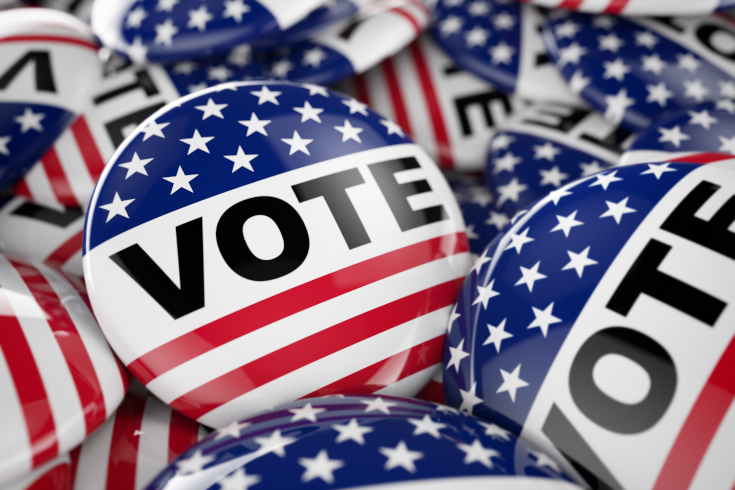Introduction – Voting guide
When I first planned this post, I considered calling this a ‘how-to’, but the reality is that your voting decisions are impacted by many personal factors – including some that may not be obvious. I am never going to assume I can give anyone a simple checklist or how-to instruction manual for such a fraught topic. Instead, what I want to do here is provide a strategy for how to give your vote the best chance of leading to outcomes that are important to you.
The Tl;Dr:
· Find your values – identify what is so important to you that it’s worth spending money on, and some specific ideas for how you think these sorts of projects and services should be paid for. Without a plan to pay for something, is at best a short-term solution and at worst a dream that will never become reality. Align your votes on laws and representatives that best represent these values.
· Do your research – Find 2-3 data points to support any decision you make when voting. Ideally these would come from a variety of sources and withstand a level of criticism from alternative points of view, but as a baseline, at least be able to explain your decision to a friend or family member. Voter’s pamphlets, google searches, TV and radio segments are all ok when used together and focusing on data points. Having any data is a good first step towards aligning decisions with outcomes.
· Avoid opinion pieces! – If an article or segment on TV/radio uses ‘I’, ‘For me’, ‘I believe’, or makes statements without citing any supporting information – toss it from your data. It’s ok to use linked sources from opinion pieces as long as those too are not opinion pieces. Such sources may be formed with a particular point of view or with the benefit of a specific individual or group in mind. It’s too easy to be manipulated online when we can’t easily see who created a specific piece of content; make decisions on facts and data, not the opinions of others.
· Put local elections first – The federal government has less power over your day-to-day life than may be obvious. If time is limited, research local elections first to make sure your vote has the greatest impact.
· Extra credit – write down your choices so you can evaluate them later. That new law sounded great, but did it have the impact you wanted? Did the politician you voted for follow their promises? These things can be tough to remember after the fact, so writing them down and evaluating them on the next election cycle can make this process easier and easier over time. For the record, I rarely do this, but when I do, I am always glad I did.
Table of Contents
Why is voting so tough?
So, you heard about a bill or a political candidate and you like what you heard – great! That’s the first step. But how much do you really know about what you are planning to vote for? If all you know is the name of the bill, then I will argue – that’s not enough.

If you only have a name, you have no real way to know what the impact of your vote will be. Will the candidate follow through on their promises? Does the bill do what the name implies? Having at least a basic level of understanding of the details behind a bill, and the motivations of elected officials, is the responsibility of every citizen in a democratic society. This was recognized as crucial to the preservation of democracy by the Founding Fathers of the US (Page 2, paragraph 2: History and Evolution of Public Education in the US). Without this we run the risk of our institutions being unduly influenced by powerful people looking for personal gain.
I found voting challenging when I started out and realized later this was influenced heavily by where I was getting my information. I often heard about issues on TV, or in social media posts, and didn’t seek out additional information to back up my decisions. I was only taking the first step. Only after choosing to be more thorough did I feel I was making informed decisions.
Media is designed to be addictive, not helpful
In short media segments it can be difficult to convey all the information about a piece of legislation required for someone to make an informed decision. This is because even the simplest bills will have technical details and nuances that will take longer than 90 seconds, or 144 characters, to explain. Instead, these segments are generally structured to bring out an emotional reaction – which is a common practice in television news today, as sensational news stories can be addictive to viewers.
This means most coverage you see in a short TV, radio, or even online article, will not tell the whole story. And even worse than that, it may not be obvious which part of the story you are getting. These short segments are prime targets for biased points of view, given there isn’t enough time to have a full discussion of the issues. Instead, most segments will focus only on the parts of a bill that benefit the person or group that is there to do the talking.
Learning about an election from TV or social media is fine but keep the limitations of these forms of information in mind. If you are feeling strongly about the points being raised, remember that emotions can impact your decision making, motivating you to act without considering other points of view. Doesn’t this sound like an ignorant and dangerous way to make decisions? Have you considered that this may be what the person on the TV wanted all along? An emotional response isn’t bad, but it can make it difficult to evaluate alternatives even when there is data pointing to an alternative course of action leading to better outcomes (Page 803, paragraph 1). Tread carefully!
So what? What can you do about this?
Emotions really aren’t the enemy. As humans we will always have emotional reactions to any piece of information that comes our way. The way out isn’t to ignore these emotions; instead step back, recognize when you are having an emotional reaction, and take the time to reflect on why you are feeling that way. This is where taking time to do your research and carefully considering your options is important.

Unfortunately, I don’t think there is time for the average person to do thorough research on every bill and representative that needs to be voted on each year.
Just like many others, I realized that many of my voting decisions were being made based on emotions rather than facts, and it became obvious that I needed to change my strategy. Instead of focusing on opinion pieces, or worse yet voting only based on party affiliations, I came up with a few simple strategies that help focus my vote on the most likely outcomes that align with my values.
Below I provide some considerations for anyone that is also struggling to feel informed on voting day and looking for an efficient way to make these decisions.
Find your values

When I refer to values, I am referring to priorities within two areas – what the role of government should be (i.e., what services the government should and should not provide), and how to finance those services. Realizing some area is important is only the first step. To make any project or service a reality, it also needs to be paid for.
As with all of life, you could spend a nearly unlimited amount of time digging into the details on either one of those areas, so as usual I look for where I can make a quick decision that has the greatest potential of impact. The worst possible position would be to not have any idea at all, so come up with a short 1-3 bullet list of the important services you think government should provide, and another 1-3 bullet list of the tax sources you want government to use to fund those services. Even the smallest government will require some source of funding, so you will need to have at least one item on the tax list (looking at you libertarians).
You don't need an opinion on everything
Before moving on – remember that no one can be informed on every single active law in the US. According to the Wall Street Journal, as quoted in this Library of Congress post, these laws extended to “50 titles and 23,000 pages of federal law” by the 1980’s.

This is partially by design, as in the US is not a direct democracy. The US is setup as a representative democracy, where our elected officials take the time to determine our laws on our behalf. This may help, but you are still required to vote for each of these representatives in addition to any ballot measures that do require public input.
You can see how many representatives you are responsible for electing each year on this government site: Find and contact elected officials | USAGov. For me, as an example, I am responsible for four local officials, 21 state officials, and 5 federal officials – for a grand total of 30 elected representatives. Do I know who all these people are? Of course not! I’d love to, but let’s be realistic. And before you jump ahead and decide to take a shortcut and just focus on presidential elections, remember that your local officials will have a much larger impact on your day-to-day life, as I explain below in ‘Think big by focusing small’.
If you are pressed for time, focus first on issues that you can easily compare against your values before doing in-depth research on other issues.
What is important to you
Most will set their priorities based on the age-old trade-off of security versus freedom. This is a simple enough question on its face – what services do you depend on, or do you think should be provided by the government, and what should be left to private citizens and companies to negotiate amongst themselves? The challenge is not looking at this purely as a hypothetical exercise and instead evaluate this based on the realities of the real world.
An example of this is to look at employment in the US. I don’t want the government to decide where or how much I should be paid for my work, instead I want to be able to negotiate this with employers and pick the work that offers the greatest benefit based on the skills I offer employers. If I stopped here, I may be tempted to say the government should not be involved in employment at all. However, what about if I am laid off? What if I am injured through no fault of my own and am unable to perform my job? There is much out of my control, even if I am the most qualified worker around, so I think it reasonable to ask for some degree of protection. I also see this the likelihood of this occurring being high enough that I am willing to pay into a system to provide these protections.
Consider what that means for a moment as well, both as they are and if the unexpected occurs. Do you just want the government to consider your needs only as they are today? What about if you lose a job or come down with a severe illness or disability? And what about others in the community that may not have had the same experiences or be in the same situation as you are today? How narrow or broad your definition of what should be protected (and paid for) is up to you.
How will these be paid for?
The first step to taking any idea from concept to reality is funding. This is a good test for your priorities. Think hard about just how much you are willing to pay for the benefits of any services you are prioritizing. If you aren’t willing to pay for them, then are these really priorities? I would argue that something you say is important, but aren’t willing to pay for, is not really a priority for you.
For those that are a priority – how are you willing to fund those initiatives? And yes, debt is an option here – I don’t like the idea of taking on debt forever, but any funding tool should be considered when justified by circumstance.
One important consideration is the impact taxes have on the population, especially how this impacts people of different income brackets. A common policy is to fund services based on usage. An example of this is to fund road maintenance based on gas taxes. This makes sense in principle – why should someone that doesn’t drive pay to maintain roads? The problem, however, is that these taxes can impact those with lower incomes the most, meaning this is a regressive tax (see Page 15, figure 5). While more progressive taxes, like income taxes, do have the consequence of requiring people to pay taxes for services they may not use, the benefit of these taxes is the ability of the government to lay the burden of funding on those more capable of paying these costs.
Any tax that doesn’t consider the person’s ability to pay will by default have some regressive nature to it, but this does not automatically mean it’s a bad tax. To me the important distinction is whether those that pay the tax will have any ability to avoid it if the cost will be too much of a burden for them. A gas tax, that must be paid by anyone commuting to a job, is an example of a tax that is very hard to avoid (especially if public transit is poorly funded). A fee charged to license a boat, on the other hand, is something most people can easily avoid. I consider the use of sales or property taxes sparingly given the burden that can be placed on low income households (see figure 6) and prefer more progressive alternatives like income taxes.
A personal example
It may expose more of my personal bias, but this is the best way I can explain my reasoning here. I’ll walk you through what I put down to demonstrate:
What economic and governance systems work best?
When I look around the world, countries with democratically elected governments using some degree of capitalist economy seem to have the most satisfied populations. This aligns to what I’ve learned in school. Capitalist economies align motivation with reward, providing an incentive for people to be as smart and productive as possible. Democratic governments give the people a voice to ensure they are not being taken advantage of by any individual or group. I find this to be a good mix. Companies maximize productivity and innovation to improve quality of life in return for an economic reward, and the government gives the populace a chance to reign in corporate greed that can go rampant when unchecked. Any system has flaws, and I recognize there are many with this system here in the US, but I am still waiting for sufficient data to justify changing this system entirely.
Prevent any one group from gaining too much influence over the system
For this system to work effectively, however, the population needs to be informed and implement rules that will limit the ability for one group to gain too much influence. If you want an example of the potential corporate greed I’m referring to, read up on coal mining towns and the use of Scrip to see just how bad this can get. My preferred method for this is to have regulations in place to prevent any one company from gaining too much power over its employees or to become something close to a monopoly in an industry.
With this limited set of rules in place to prevent companies from becoming bullies, I then want to ensure there are avenues for new companies to start up and provide the competitive forces required to spur innovation while also keeping wages & pricing in balance. Deciding how much regulation to utilize to control monopolies, while not limiting the ability for new businesses to get into an industry, is a constant challenge given regulation will generally add a burden on the operation of private businesses. With a data-focused approach and a willingness to recognize failure and success objectively, I believe it is possible to find this balance.
Enable the population to perform its role
For the population to be sufficiently informed to perform these roles, it needs a knowledge of how the government functions, a basic understanding of economic principles, critical thinking skills, and an able body and mind.
The first three of these attributes can be provided through education. Primary school to teach children how the world functions as we know it today, and further educational opportunities to prepare the rest of us to explore the unknown areas of our universe to find new possibilities we didn’t even know existed. A great example of why continued investment in exploration of the unknown is valuable is the adaptation of X-ray technology from its first use on satellites to being used for airport security today. If we only look at the spending by NASA on space exploration as a novelty, for example, we miss out on the opportunity to bring innovations back to the private sector to enhance everyday lives back on Earth.
An able body and mind are necessary as well to ensure the population can prioritize civic responsibilities. This means that healthcare for the body and mind must be available to the population. Notice I’m not being prescriptive about how, although I am wary of a system that relies on employer-sponsored healthcare plans, with approximately 46% of the 330M US population relying on employer-sponsored healthcare plans, and where most employees are in At-will employment states that require no notice before employees can be terminated and lose those benefits. Given that the US does not guarantee healthcare coverage to the population, yet still spends more than any other country in the world, and all while maintaining the lowest life expectancy of any of the 38 OECD countries, says to me that the current system may need some work. (Full publication on healthcare spending and outcomes)
Maintain independence
An independent country should have some allocation for defense to protect that independence. I won’t go into much detail here given the sensitivity of the topic. I’ll simply say the definition of ‘defense’ is something that appears to differ wildly from person to person.
My values list
Based on the above, a short-list of values could look like this:
- Limiting the power and influence of larger companies – making sure companies with seemingly infinite wallets can’t become monopolies or unduly influence legislation to give themselves unfair advantages.
- Make it easy to start new businesses – keep competition alive so that economic forces can lead to the greatest benefit for as many as possible.
- Invest in our nation’s future – provide education and healthcare to have a healthy and informed population. Research the unknown to continually improve our understanding of the universe, to bring that knowledge back home and improve the lives of those back on Earth. I also view this as the area for prioritization of defense spending, as I want to retain an independent nation that can make these decisions for itself.
Notice that I don’t have detailed plans for these areas. I don’t want to be prescriptive, because I don’t have time to carefully consider all the pros and cons of every option within these areas. What I am looking for instead are programs that have logical and fact-based solutions proposed that lead to outcomes aligning with my values, and that have a plan for funding. What I am certainly NOT looking for is someone to tell me the system is broken and propose tearing it all down with nothing ready to go to replace what we have today. Repeated statements about how something is broken without a thorough plan to address it would be an example of inflammatory language meant to stir up an emotional response, not a strategy for how to make things better.
Given the challenges I noted in the ‘How will these be paid for?’ section above, I tend to prioritize taxes in this order:
- Progressive income taxes (both on personal and corporate earnings), with credits for those living near the poverty line.
- Consumption taxes that impact higher income individuals, like property taxes, estate taxes
- And if all else fails, use more broadly impactful consumption taxes like retail sales taxes or gas taxes, but only if absolutely required.
And again, these are not prescriptive, and I don’t tie any service to a particular tax source either. Programs are either worth paying for or not – the source of income doesn’t change whether a program is a priority or vice versa.
Applying your values
At this point you have a set of values that can be applied to any election-day decision. I will use these values to form an initial impression on how I feel about a bill or representative. Does the bill increase or continue a tax that isn’t in my list of priority income sources? That moves it down a point. Does it include a logical plan to introduce or improve a service that is in my list of important services or functions of government? That moves it up a point. Does the group or individual proposing a decision utilize data and an outcome-focused approach to decision making? If so that’s another point.
This is the first step. To make sure you are getting the best outcomes from your vote you will need to do additional research.
Do your research
Just because a bill proposes to increase or decrease a certain tax, how can you be sure you will be happy with the outcome? Do you know what services that tax will pay for? Is there another source of funding in place that can cover the lost revenue if that tax is removed, or is removing that service your desired outcome? The same logic applies for a representative promising to provide some local funding – if they promise to fix a bridge or bring in services, how exactly is that going to be paid for? If we are only talking about how to build a bridge, what about the plan for ongoing maintenance? If they don’t have a full plan to describe how these projects will be funded, then that’s not a realistic promise.
Here are some ways to do your own research to form an educated opinion and vote for outcomes that align to your values.
Searching the internet while avoiding opinion traps

Web searches are a great source of information, but only when sources are carefully considered. Remember that anyone can make a website, so finding a source online that says something you like isn’t enough. That’s why I include data points in my articles – so you can see the data behind my conclusions and make your own judgements.
Check the data for yourself by checking links to make sure there are studies or other factual data sources supporting the conclusions in the article. If there are no links that is a big red flag. With no data directly supporting the statements in an article you have no way of verifying accuracy. It doesn’t matter how good it sounds – for all you know it could be completely made up!
Also remember to check the website itself even after verifying the data in a particular article. Do you know the founders or the group behind the website itself? If you are looking at a new site, checking Wikipedia or other sources for a background on the website founders themselves should be done to check for their political affiliations and biases. This won’t invalidate the data presented but should add to your understanding of the source.
Getting stories from multiple sides can help you consider what the real story is behind the rhetoric. The Factual is a great site for parsing out the bias between news coverage on a specific topic. Immigration is a great example. Searching The Factual for stories on migration shows how sites with different political bias are covering. While writing this article, I see liberal leaning sites were likely to focus on conditions for migrants while conservative leaning sites are likely to call this a ‘crisis’ or call migrants ‘illegals’. It’s easy to imagine how different of a conclusion someone may come to by reading stories from only one point of view on such a complicated topic.
Use voting guides
Voting guides are one of my favorite information sources, as you can get information directly from political candidates, and see raw data on what an initiative is proposing to do and how it will be funded.
Here in Washington state the explanatory statement for legislation will provide raw data. Look this over closely for what tax is being changed and details of the service that will be impacted. Check this against your values to look for alignment.
Voting guides generally include statements for and against, along with responses, which are written by committees appointed by the local legislature here in Washington state. These are also great sources of information but can be heavily biased given they are written by groups on that side of the measure, so I treat them much like reviews for products online. The important thing to look at is what either side is criticizing. Look at what the statement for and against highlight about the bill, as this is the place to bring out the big guns and highlight what they feel is the greatest or worst part about the bill. If you are considering voting for a particular measure, but the statement for is pushing a narrative that doesn’t align with your values, then this is an issue you should do additional research on before committing to a decision.
Political candidates also submit statements on their own behalf that must meet certain requirements (details of structure for these statements here in Washington state). Much like the statements for on a bill, candidate statements are great because they provide a space for the candidate to lay out their most compelling argument for why they should be in the role. In these statements I’m looking for a few things:
- What is their background in education, work experience, service, or any other area of life that equips them to be successful in this role? If they are managing a port or a sector of government, for example, I am looking for management experience and technical experience in a related field, or a very compelling story as to why they will be successful without this experience. Credentials aren’t always an indicator of success, but these do show the person has invested time and energy to gain skills that could help them be successful in this position.
- How they plan to apply that experience is crucial. Those with a lot of business experience may be tempted to think in terms of efficiency and growth – a good mindset for operating a port, but likely not the best skillset for a Sheriff for a school super-intendant, given those departments are intended to provide social benefits to the population and not return a profit. For schools and policing someone that has worked in those areas or has social services backgrounds may be able to more readily apply their expertise to the role. Keep in mind that space is limited in these statements, so those few areas they choose to highlight are what they consider most important about the role, so what they choose to highlight says mountains about their priorities.
- The candidate will not be able to outline everything they plan to do in the role, so I instead look for their philosophy for leadership and the service they are planning to support. I’m looking for statements of their intent, followed by the practical outcomes they expect. Utilizing a port commissioner race again as an example, given here in Seattle we have the ‘fourth largest container gateway in North America’ (according to the Port of Seattle), I am very critical of anyone suggesting the port should be run more efficiently. Of course this is always a concern, but in what areas specifically do the port’s operations need to be changed? I am not expecting a full explanation, but if no areas of note can be given, I don’t have confidence that the candidate has any specific ideas to realize the change they are promising.
- This may seem obvious but is also very important – check for factual accuracy. If a candidate makes claims in these statements, they should match the reality on the ground. I saw a statement once, by a candidate I won’t name, that claimed he ‘created thousands of jobs’. The reasoning? Because he was a banker providing small business loans. This is certainly an important part of the economy, but did he really ‘create’ these jobs while working for a commercial bank or was that done instead by the business owners that were coming to his bank for loans? You can make your own conclusions about the validity of statements like this, but to me this looks an awful lot like taking credit for other people’s work, and that is not the mindset of someone I feel I can trust. When in doubt, use web searches to backup questionable statements, applying the web search tips provided above.
Radio and television interviews and debates
If you do have the time, listening to long-form interviews and debates on candidates and laws is incredibly useful. These should be supplemented by some research on the letter of the law itself, and on a candidate’s voting & work experience, so you can find the middle ground between the extremes that may be presented by either side of an issue. This isn’t quite a one-and-done sort of research style, but it can get you close.
The benefit here is the back-and-forth. You can see what either side brings up as the most important issues, as well as their statements as to why the other side isn’t thinking about the issue correctly to get a peek at their leadership and decision-making philosophies. As usual be wary of believing outright what anyone says as they are going to be biased towards their solutions, and I don’t think anyone in this world gets everything right 100% of the time.
Look for the mindset of a candidate. Do they apply critical thinking skills and think beyond themselves to consider alternative points of view? This can show someone that is willing to learn and adapt to a changing environment, but if not, they may be unwilling to make informed decisions based on facts. Do they provide facts and evidence for why their current points of view are the best ones? If so, this shows they are likely to take outcome-based approaches to problem solving, instead of focusing on inflammatory statements meant to invoke an emotional reaction.
These formats also provide time to uncover some of the dirty laundry behind a bill that could otherwise be easily hidden in short explanatory statements. A challenge here is making sure you are getting an unbiased view of the facts, which can be difficult when different news outlets tend to lean in favor of one political ideology over another. Apply the techniques noted in the ‘Searching the internet while avoiding opinion traps’ section above against the entity hosting the interview or debate to make sure you are aware of any inherent bias that may go into the topics discussed.
Think big by focusing small
When put together, the tools above provide a strategy for evaluating most options you will see on a ballot. Time and attention are required, however, for this strategy to be implemented successfully. You may need to prioritize some votes over others if your time is limited.
The President of the United States of America holds immense power on the world stage, and together with Congress and the Supreme Court set laws that impact every citizen of the US. So, you may be tempted to conclude that you should vote for federal positions first.
But did you know that your elections for city, county, and state offices and laws can have a much larger impact on your daily life? If you’re split on time, it is likely more beneficial to focus on these local elections first. This may seem counter-intuitive at first – so here are some examples to help demonstrate why this is so important to keep in mind.
Feel free to skip the sections below – these are provided purely for reference as to why local elections are so important. If you are only interested in the strategies for how to evaluate your voting choices, then good news! Everything you read above should equip you for that purpose, so if that’s you, then happy voting and see you in the next post!
The gas tax
Since 7/1/16 (the last date this tax was changed), drivers in Washington state pay 67.8 cents on every gallon of gasoline purchased. Of this amount, only 18.4 cents (or 27%) of this amount are due to federal taxes. The remaining 49.4 cents (or 73% of the combined 67.8 cents/gallon) comes from State taxes.
Whether or not you believe this tax is important, too high, or too low, is irrelevant. The important piece to remember is that federal rules are not responsible for most of this tax – the State is responsible for over 70% of the taxes charged on these sales.
With any tax, it’s also important to remember how these funds are used. Based on a 2019 story by Tax Foundation (a think tank focused on tax policy), Washington state funded 63.5% of road maintenance costs from WA state taxes, with the remaining coming from federal funding. Drilling down on road maintenance costs specifically, 50.5% of these maintenance costs are funded from gasoline and license taxes and 13% come from tolls.
If this is an issue of importance to you, keep in mind where the greatest levers are for making change – which is at the state level here in Washington. And if you are looking to have these reduced, I would also recommend you consider how these taxes are used, and make sure you have a plan for either replacing these taxes or reducing the need for these services in the future.
What about the price of gasoline?
No one state can set the price of gasoline. But what about federal and foreign policy impacts on gas prices, you may ask? For example, from January to June 2022, the average price of a gallon of regular conventional gasoline in the US increased in price from $3.14/gallon to $4.84/gallon while gas taxes were unchanged. This was an increase of over 50% before prices began to decrease again in July according to the US Energy Information Administration. But remember that the federal government doesn’t set gas prices either – prices are controlled by private companies that control the supply of gasoline. I hope you will consider a few points before rushing to judgment about who is responsible.

During the example period above, in April of 2022, executives from Exxon Mobil, British Petroleum (BP), and other fuel companies testified before congress about the rising prices.
During one of these hearings, ABC quoted Chevron CEO Michael Wirth as saying, “I want to be absolutely clear: We do not control the market price of crude oil or natural gas, nor of refined products like gasoline and diesel fuel, and we have no tolerance for price gouging,”. ABC also quoted Exxon Mobil CEO Darren Woods as saying, “While there is no quick fix, the answer in the near term, until there are more widely available and affordable alternatives, is straightforward. We need to increase the supply of oil and natural gas”.
This seems to imply that the gasoline companies were victims of market swings like everyone else, and any restriction or further regulation on their business could actually make things worse! At this time, the war in Ukraine had just begun (having been started in February 2022), so it would be easy to blame supply disruptions due to the war. However at this same time, the New York Times did a story on America’s supply of gasoline and found that the US only imported approximately 3% of total oil consumption from Russia. This doesn’t seem to be a compelling argument on its own. But what do we know? We don’t run the company, right? Maybe they are struggling just like us.
Luckily, we can check financial statements for these companies to see what the actual impacts were, as they are publicly traded. Looking at Chevron’s financial statements paints a very different picture from the innocent victim story told to congress. In the quarter ending in June 2022, Chevron reported a profit of $11.6 billion, an increase from $3.1 billion in the same period the prior year – an increase of 274%. Who exactly is the victim here? How could an impact on 3% of the supply chain result in profits (not revenue, but profit) increasing by almost 300%!?
You can draw your own conclusions, but from this limited data set at least, it looks to me like Chevron isn’t a victim of federal policy and world events but is instead benefiting greatly all while pretending to be a suffering just like everyone else. How much did the President and congress play in this? Maybe they are receiving benefits in terms of stock dividends, lobbying money, or political donations from these companies and therefore have an incentive for them to succeed. That is certainly possible, but even if this were true that would still mean those with their hands on the levers are in these private businesses, the same people who are seeing profits skyrocket all while complaining about supply-chain problems.
This is all to say that the US President, with as much power as that role may have, can’t directly control the price of gasoline. And if you’re tempted to think of this on a partisan basis, thinking one side may have a worse track record on prices, consider this. Looking back from 1999 to 2020 from the same EIA data set, there were similar 30+% increases over the below 6-month periods as well, while each party was in power:
- March 1, 1999 to August 30, 1999: $0.89 to $1.21/gallon, an increase of 36%. President Bill Clinton in office, Democrat
- December 20, 1999 to June 19, 2000: $1.26 to $1.66/gallon, an increase of 32%.
- December 15, 2003 to June 14, 2004: $1.43 to $1.93/gallon, an increase of 34%. President George W. Bush in office, Republican
- March 7, 2005 to September 5, 2005: $1.98 to $3.04/gallon, an increase of 53%.
- November 20, 2006 to May 21, 2007: $2.22 to $3.21/gallon, an increase of 45%.
- January 29, 2007 to July 30, 2007: $2.12 to $2.85/gallon, an increase of 34%.
- December 24, 2007 to June 23, 2008: $2.94 to $4/gallon, an increase of 36%.
- December 22, 2008 to June 22, 2009: $1.64 to $2.65/gallon, an increase of 62%. President Barack Obama in office, Democrat
- November 1, 2010 to May 2, 2011: $2.76 to $3.91/gallon, an increase of 42%.
- January 19, 2015 to July 20, 2015: $2 to $2.66/gallon, an increase of 33%.
- November 23, 2020 to May 24, 2021: $2.01 to $2.92/gallon, an increase of 45%. President Joe Biden in office, Democrat
These events happened during both Democrat and Republican presidencies. No one side is immune to such increases.
What do you do with this information? Sure, I’d love to say we should demand better from these large companies and from our political leaders at the federal level. While I’m not hopeful this is going to happen any time soon, I align my personal choices and my voting decisions to the direction I want to see policy move in this area. The key is to remember who is responsible – whether the price of gasoline goes up or down probably doesn’t have much to do with congress or who is in the White House, at least based on what I’m seeing.
Focusing all your effort on voting for candidates for congress and for President because you are upset at the price of gasoline doesn’t seem like a good use of time to me. Instead, it is much better to focus on the policy decisions these individuals support, as those policy decisions are what make it easy for companies like Chevron to keep recording record profits, while those at the bottom of the economic ladder suffer by paying higher and higher prices for gasoline. Because these are large issues that will take a long time to realize change, I choose to spend my limited time focusing on local elections first before worrying about larger issues like this one.
Public Schools
Public school funding and administration is another divisive issue today. However, this issue is influenced even less by the federal government than gas taxes.
Looking at data from 2020, only 8% of funding for public schools in the US came from the federal government. Detailed data is available from the NCES (Page 3, Public School Revenue sources) which showed that of the $871B in total funding for primary education that year, only $66B (8%) came from federal sources, with the rest coming from state and local sources. Looking at the local level here in Washington, for example, approximately 80% of school funding comes from the state while approximately 10% is from local levies (according to a story in Crosscut).
Even curriculum and class sizes are generally controlled at the local level. Federal policies like the Every Student Succeeds Act (ESSA), may require schools to demonstrate performance in order to receive federal funding, but these are related primarily to accessibility and accountability for tracking student performance – not specific targets for class sizes or requirements for what should be included in class curricula. Looking at Washington state as an example again, learning standards and the student to teacher ratio are both set at the state level.

Conclusion
Much is asked of the electorate for democracy to function. Without a well-informed, and actively voting, population, we run the risk that small groups induce an outweighed influence on the laws we live under and who is chosen to represent our interests in government.
But the reality is that most of us don’t have the time or resources available to make fully informed decisions on every topic on election day. My hope is you can use some of the tips provided above to develop your own strategy for making better informed decisions, and make the best use of what time you do have available (and maybe consider if voting day should be a national holiday!).
Understand how important voting is, make an attempt, and do your best. Then just f’in coast.


